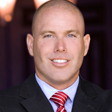Boomers Going Out with a Bang: A Historic Transfer of Wealth
They’ve amassed $30 trillion in assets to pass down, but many don’t have plans in place to safeguard their legacies. Here are five things they should do to cover their bases.


Profit and prosper with the best of Kiplinger's advice on investing, taxes, retirement, personal finance and much more. Delivered daily. Enter your email in the box and click Sign Me Up.
You are now subscribed
Your newsletter sign-up was successful
Want to add more newsletters?

Delivered daily
Kiplinger Today
Profit and prosper with the best of Kiplinger's advice on investing, taxes, retirement, personal finance and much more delivered daily. Smart money moves start here.

Sent five days a week
Kiplinger A Step Ahead
Get practical help to make better financial decisions in your everyday life, from spending to savings on top deals.

Delivered daily
Kiplinger Closing Bell
Get today's biggest financial and investing headlines delivered to your inbox every day the U.S. stock market is open.

Sent twice a week
Kiplinger Adviser Intel
Financial pros across the country share best practices and fresh tactics to preserve and grow your wealth.

Delivered weekly
Kiplinger Tax Tips
Trim your federal and state tax bills with practical tax-planning and tax-cutting strategies.

Sent twice a week
Kiplinger Retirement Tips
Your twice-a-week guide to planning and enjoying a financially secure and richly rewarding retirement

Sent bimonthly.
Kiplinger Adviser Angle
Insights for advisers, wealth managers and other financial professionals.

Sent twice a week
Kiplinger Investing Weekly
Your twice-a-week roundup of promising stocks, funds, companies and industries you should consider, ones you should avoid, and why.

Sent weekly for six weeks
Kiplinger Invest for Retirement
Your step-by-step six-part series on how to invest for retirement, from devising a successful strategy to exactly which investments to choose.
Maybe we should call them “Generation Generous.”
Over the next few decades, Baby Boomers will pass down an estimated $30 trillion in assets to their children and grandchildren.
It’s money they’ve worked hard to save and want their loved ones to have. And yet, most Boomers — perhaps because they simply can’t imagine growing old, much less dying — have done little to prepare for the challenges that will come with this epic transfer of wealth. Meanwhile, their children — mostly Millennials who, according to recent research, are largely skeptical of professional financial services — are confident they can use do-it-yourself digital tools to deal with Mom and Dad’s money whenever they get it.
From just $107.88 $24.99 for Kiplinger Personal Finance
Become a smarter, better informed investor. Subscribe from just $107.88 $24.99, plus get up to 4 Special Issues

Sign up for Kiplinger’s Free Newsletters
Profit and prosper with the best of expert advice on investing, taxes, retirement, personal finance and more - straight to your e-mail.
Profit and prosper with the best of expert advice - straight to your e-mail.
They’re both wrong, of course.
There can be dozens of decisions that need to be made to help properly pass down this money — to help preserve it from taxes and avoid going to probate, to make sure it goes to the intended people, is used as the parents intended, to provide asset protection in case a child is divorced or sued, and to ensure the children aren’t accidentally disinherited.
Solid planning can help prevent mistakes that could cause potential arguments or lawsuits and mean trouble for generations to come. Here are some things to consider:
1. Get your children involved with you and your financial professional early on.
At least make an introduction to give them a basic understanding, from a 10,000-foot perspective, of what’s important to you. If you’re comfortable getting into details, consider sharing the types of assets you’ll leave and how you would like them to be divided. You may be surprised at the things that can cause arguments down the road. Often, it isn’t about the money; it’s the sentimental assets, such as a vacation cottage or cabin, or a treasured piece of jewelry or art. You should also be aware that your children’s spouses may get involved and try to influence their expectations. So be clear about who should be included in this conversation.
2. Talk to your financial professional about tax-efficient strategies.
I believe and have read many articles that say a majority of the heirs who inherit an IRA take it as a lump sum, pay all the taxes and blow it within nine months. If this isn’t what you want for your kids — and their kids — talk about multi-generational IRAs, ensuring your children appreciate and understand the advantages of keeping the tax deferral throughout their lifetime. For a generation who likely won’t have pensions, this strategy can legally force them to stretch out the money and may provide a lifetime income stream.
3. Choose a capable decision-maker.
After all debts have been settled, it is up to the executor or successor trustee to distribute the assets to heirs according to the provisions of your will. He or she may have to deal with disappointed family members or others who feel they didn’t get their due and will drag out the process. Ultimately, this may only eat away at the money you’re leaving. This isn’t an honorary title to be bestowed on the eldest son or the favorite child. We think it should be someone who is well-liked, respected, persistent and business-minded, as this is a large responsibility and shouldn’t be taken lightly. This person will have a fiduciary responsibility to follow your wishes as they are stated.
4. Make sure your health care — and end of life — wishes have been made clear to all family members.
Tell them specifically what you want to happen, and try to have that conversation with them all at the same time. This is where we can see fights. For example, one child wants to hold on and keep Mom on a respirator and/or feeding tube. And no one is sure what Mom really wanted because she told each sibling something different. Make sure your wishes are well-documented, and work with your estate-planning attorney so you are clear in your estate documents.
5. Talk about asset protection.
The last thing you want is for some or all of the money you leave to your children and/or grandchildren to go to a potential ex-son-in-law or ex-daughter-in-law, or for it to be lost because of a future legal issue. There may be ways to prevent that through proper estate planning — by setting up different kinds of trusts, by providing clear documentation regarding any gifting, and by keeping property correctly titled, for example. We recommend that you meet with your estate-planning attorney to discuss.
It all starts with communication with your loved ones and your team of financial professionals. Everyone should understand who’s getting what, how, when and why. Some people say, “Well, our family is all spread out — it’s too difficult to get together.” But you can do this with a conference call. Or, if there are visuals — if parents really want to share specifics — you can do it with today’s technology, like Join Me or GoToMeeting.
Just lay it out there to help reduce any problems so everyone knows what Mom and Dad want.
Kirk Cassidy is president of Senior Planning Advisors (www.seniorplanningadvisors.com) and Strategic Investment Advisors. He has passed the Series 65 securities exam, which makes him a fiduciary, and he has a life insurance license in several states including Michigan and California (CA license number 0F68091). He also is a national speaker.
Kim Franke-Folstad contributed to this article.
Profit and prosper with the best of Kiplinger's advice on investing, taxes, retirement, personal finance and much more. Delivered daily. Enter your email in the box and click Sign Me Up.

Kirk Cassidy is president of Senior Planning Advisors and Strategic Investment Advisors. Cassidy is an Investment Adviser Representative and a fiduciary with a Series 65 securities license and life insurance licenses. He is a national speaker who teaches retirement planning in a university setting.
-
 Nasdaq Leads a Rocky Risk-On Rally: Stock Market Today
Nasdaq Leads a Rocky Risk-On Rally: Stock Market TodayAnother worrying bout of late-session weakness couldn't take down the main equity indexes on Wednesday.
-
 Quiz: Do You Know How to Avoid the "Medigap Trap?"
Quiz: Do You Know How to Avoid the "Medigap Trap?"Quiz Test your basic knowledge of the "Medigap Trap" in our quick quiz.
-
 5 Top Tax-Efficient Mutual Funds for Smarter Investing
5 Top Tax-Efficient Mutual Funds for Smarter InvestingMutual funds are many things, but "tax-friendly" usually isn't one of them. These are the exceptions.
-
 Social Security Break-Even Math Is Helpful, But Don't Let It Dictate When You'll File
Social Security Break-Even Math Is Helpful, But Don't Let It Dictate When You'll FileYour Social Security break-even age tells you how long you'd need to live for delaying to pay off, but shouldn't be the sole basis for deciding when to claim.
-
 I'm an Opportunity Zone Pro: This Is How to Deliver Roth-Like Tax-Free Growth (Without Contribution Limits)
I'm an Opportunity Zone Pro: This Is How to Deliver Roth-Like Tax-Free Growth (Without Contribution Limits)Investors who combine Roth IRAs, the gold standard of tax-free savings, with qualified opportunity funds could enjoy decades of tax-free growth.
-
 One of the Most Powerful Wealth-Building Moves a Woman Can Make: A Midcareer Pivot
One of the Most Powerful Wealth-Building Moves a Woman Can Make: A Midcareer PivotIf it feels like you can't sustain what you're doing for the next 20 years, it's time for an honest look at what's draining you and what energizes you.
-
 I'm a Wealth Adviser Obsessed With Mahjong: Here Are 8 Ways It Can Teach Us How to Manage Our Money
I'm a Wealth Adviser Obsessed With Mahjong: Here Are 8 Ways It Can Teach Us How to Manage Our MoneyThis increasingly popular Chinese game can teach us not only how to help manage our money but also how important it is to connect with other people.
-
 Looking for a Financial Book That Won't Put Your Young Adult to Sleep? This One Makes 'Cents'
Looking for a Financial Book That Won't Put Your Young Adult to Sleep? This One Makes 'Cents'"Wealth Your Way" by Cosmo DeStefano offers a highly accessible guide for young adults and their parents on building wealth through simple, consistent habits.
-
 Global Uncertainty Has Investors Running Scared: This Is How Advisers Can Reassure Them
Global Uncertainty Has Investors Running Scared: This Is How Advisers Can Reassure ThemHow can advisers reassure clients nervous about their plans in an increasingly complex and rapidly changing world? This conversational framework provides the key.
-
 I'm a Real Estate Investing Pro: This Is How to Use 1031 Exchanges to Scale Up Your Real Estate Empire
I'm a Real Estate Investing Pro: This Is How to Use 1031 Exchanges to Scale Up Your Real Estate EmpireSmall rental properties can be excellent investments, but you can use 1031 exchanges to transition to commercial real estate for bigger wealth-building.
-
 Should You Jump on the Roth Conversion Bandwagon? A Financial Adviser Weighs In
Should You Jump on the Roth Conversion Bandwagon? A Financial Adviser Weighs InRoth conversions are all the rage, but what works well for one household can cause financial strain for another. This is what you should consider before moving ahead.